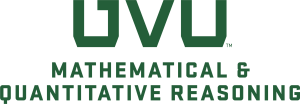The Importance of Numeracy
From splitting up a restaurant bill among your friends, mixing the right proportions of different ingredients, determining a best deal, or determining the worth of a college education, numeracy is an essential tool in our everyday lives. This notion alone is enough to scare those who associate their poor mathematical abilities with the oft cited but mythological label that says, “I am just not a math person”.
However, mathematics is not just for rocket scientists but is a skill that allows us to solve many of the practical problems that we stumble upon in our daily lives. Such math skills are referred to as numeracy.
The Importance of Numeracy
Learning knowledge and skills that will remain relevant across various industries is more vital than ever, and numerical skills are also a reflection of your critical thinking and problem solving abilities. Big companies often rely upon big data to better guide their decision-making; because of this, sprucing up your resume by demonstrating that you are a numerate person, will give you a better opportunity in the competitive job market.
It has been well proven that there is a correlation between financial literacy and numeracy (Bernheim, 1995[1], 1998[2], Hilgert, Hogarth, and Beverly, 2003[3]). People who lack confidence in numbers may have a hard time managing their finances. Even simple financial activities like managing your daily cash inflows and outflows, making price comparisons, and even developing a weekly budget plan demand a certain level of numeracy.
Three Basic Ways to Improve Your Numerical Skills
We have all become accustomed to hearing the myth, “I am just not a math person”, and many have deeply instilled in themselves the idea that being good at math is a natural-born talent, and so they are unable to improve their numerical ability. This mentality has been confronting teachers and researchers for many years, and the truth is that all of us can essentially be math people. If your thoughts tell you otherwise, you have probably been helping nurture a myth that has been considered one of the most destructive ideas in the US.
Everyone, including you, has the ability to succeed in learning numeracy. With effort, patience, and the right strategies, you can definitely witness an improvement in your numeracy skills. Here are some of the steps that you can take to enhance your own mathematical ability.
Don’t Memorise
With math, it is not all about memorizing countless mathematical laws and principles, and in fact, memorizing facts and procedures is what you should avoid at all times in the learning process. Many arithmetic operations like addition, subtraction, division and multiplication, and even operations on square roots carry their own intuitive meanings that we can easily understand. Aside from these, you should also be familiar with the properties of numbers, such as the commutative, associative, distributive, and identity. Learn to recognize the patterns behind these operations and understand them.
Don’t Be Afraid of Making Mistakes
Many of us may think that making mistakes is wrong. However, it is actually part of the learning journey of mathematics. Neurological research has shown that making a mistake is not a bad thing; as we reflect upon the mistakes we have made, it is a great time for our brains to grow.
You should learn to embrace your mistakes and turn them into a learning opportunity. When it comes to mastering mathematics, there are no magic tricks besides patience and effort. As you practice, and learn from your mistakes, your performance will improve and so will your understanding. The more problems you solve, the better you will get at handling those types of problems.
Frequent practice of applying mathematical concepts and techniques helps you develop mastery of various mathematical skills and operations. You will be capable of adopting various mathematical techniques to solve problems in business, science, or daily life.
Ask Questions
Your teacher is always available to answer questions-don’t be afraid to ask. The internet is rife with resources and free-to-download applications that may guide you through the learning process.

Adapted from: https://www.skillsyouneed.com/rhubarb/numerical-skills-today.html
- Bernheim, D. 1995. Do households appreciate their financial vulnerabilities? An analysis of actions, perceptions, and public policy. In Tax policy and economic growth, 1–30. Washington, DC: American Council for Capital Formation. ↵
- Bernheim, D. 1998. Financial illiteracy, education and retirement saving. In Living with defined contribution pensions, eds. O. Mitchell and S. Schieber, 38–68. Philadelphia, PA: University of Pennsylvania Press. ↵
- Hilgert, M., J. Hogarth, and S. Beverly. 2003. Household financial management: The connection between knowledge and behavior. Federal Reserve Bulletin: 309–322. ↵

